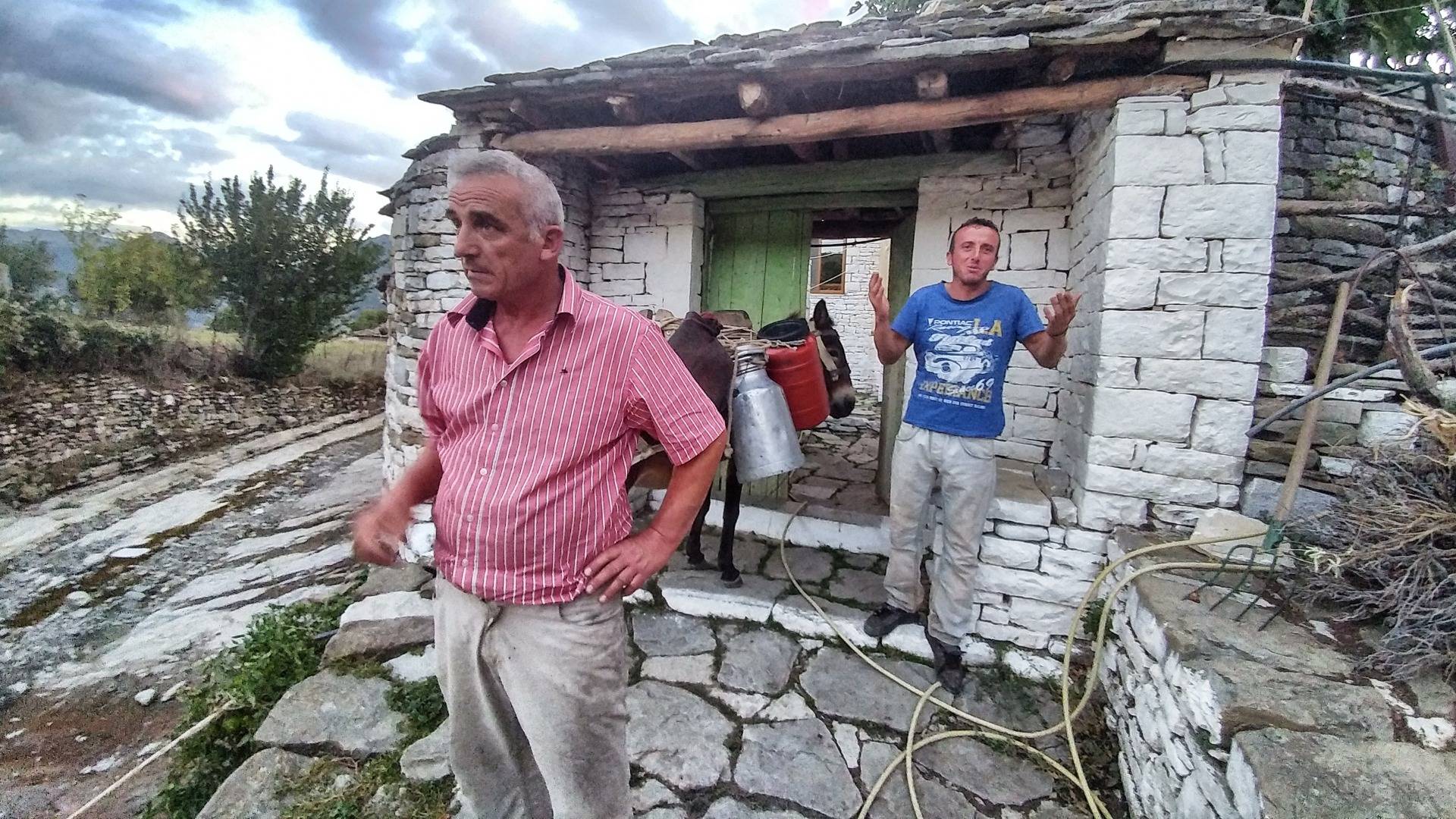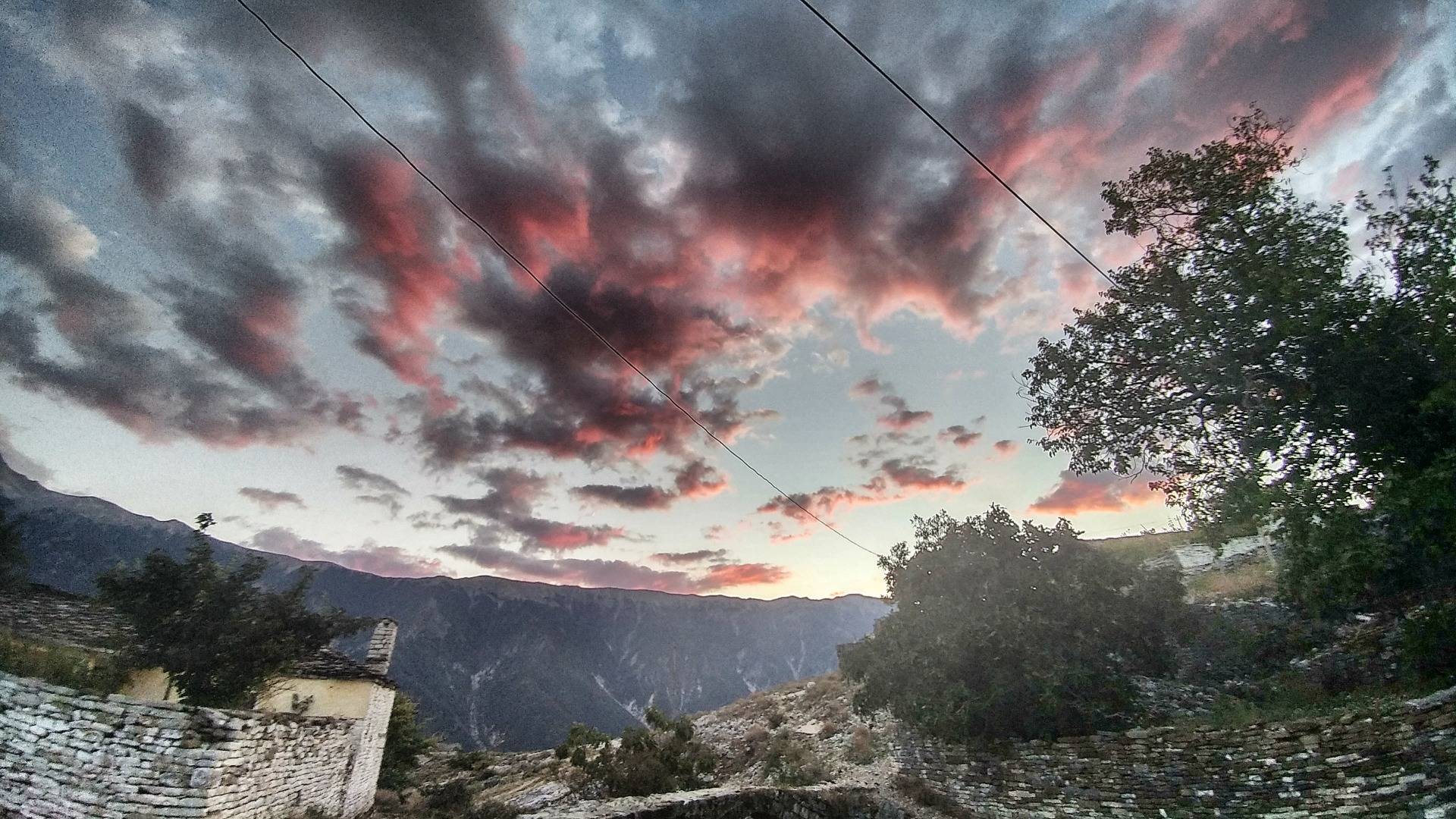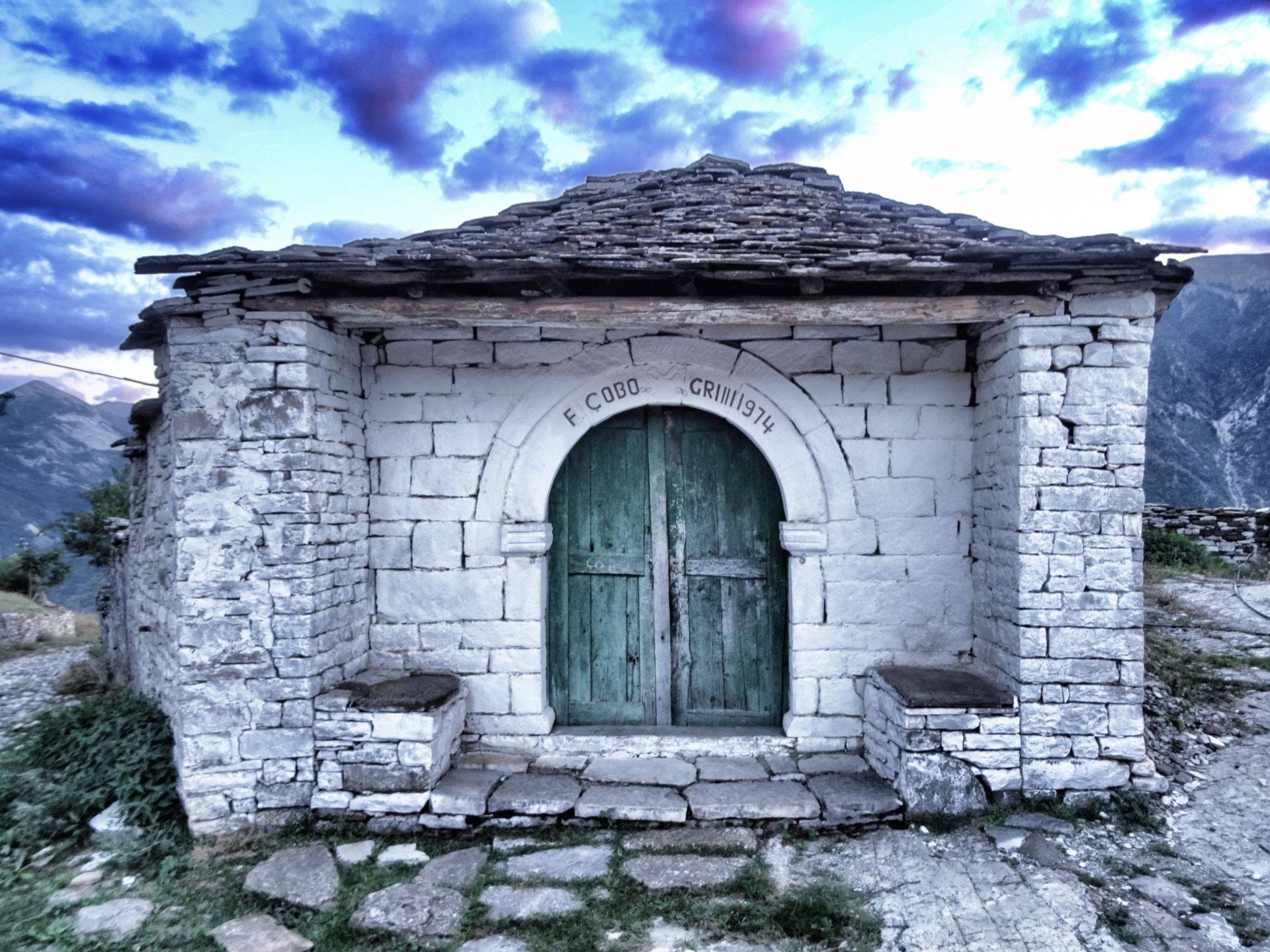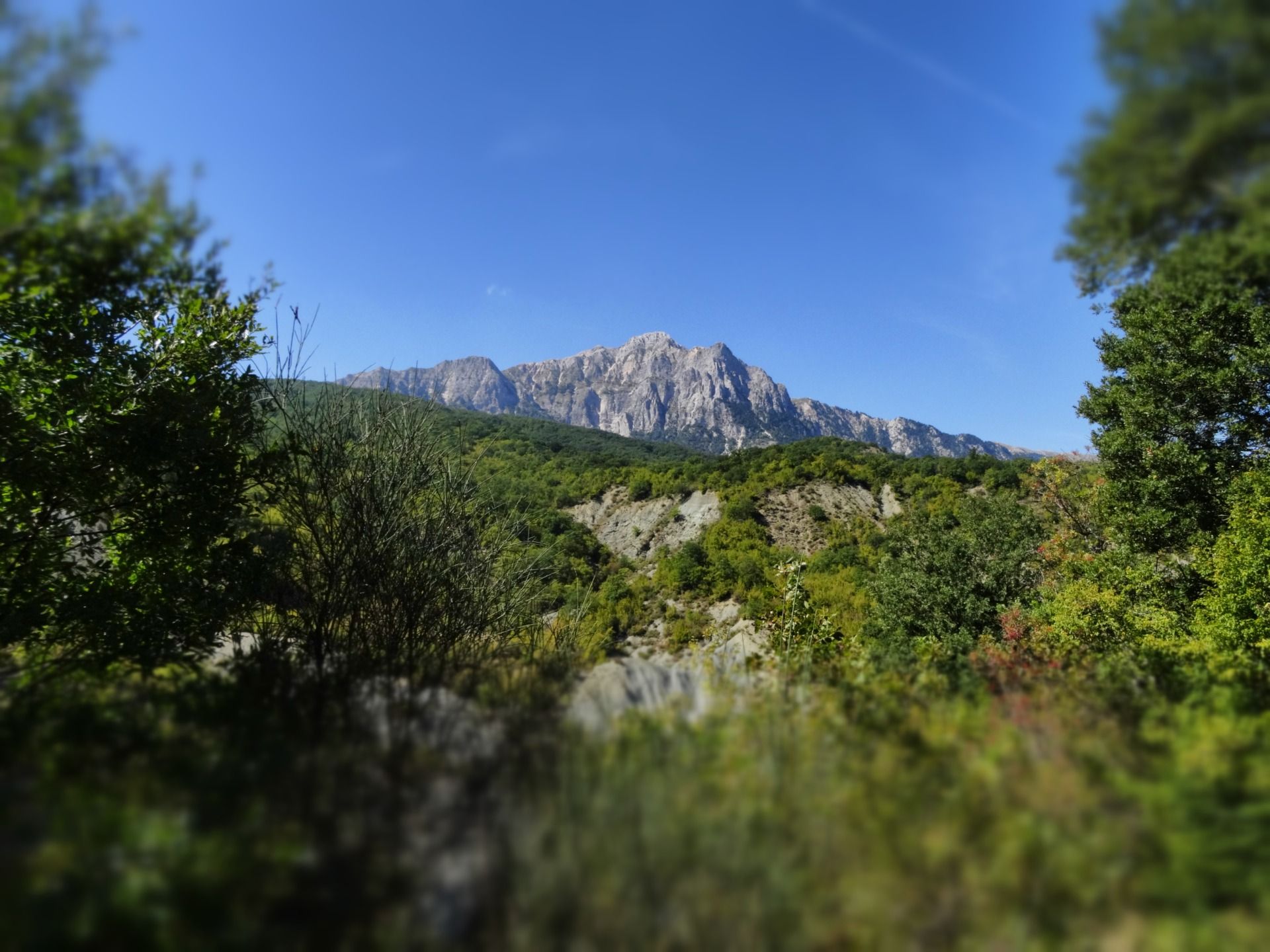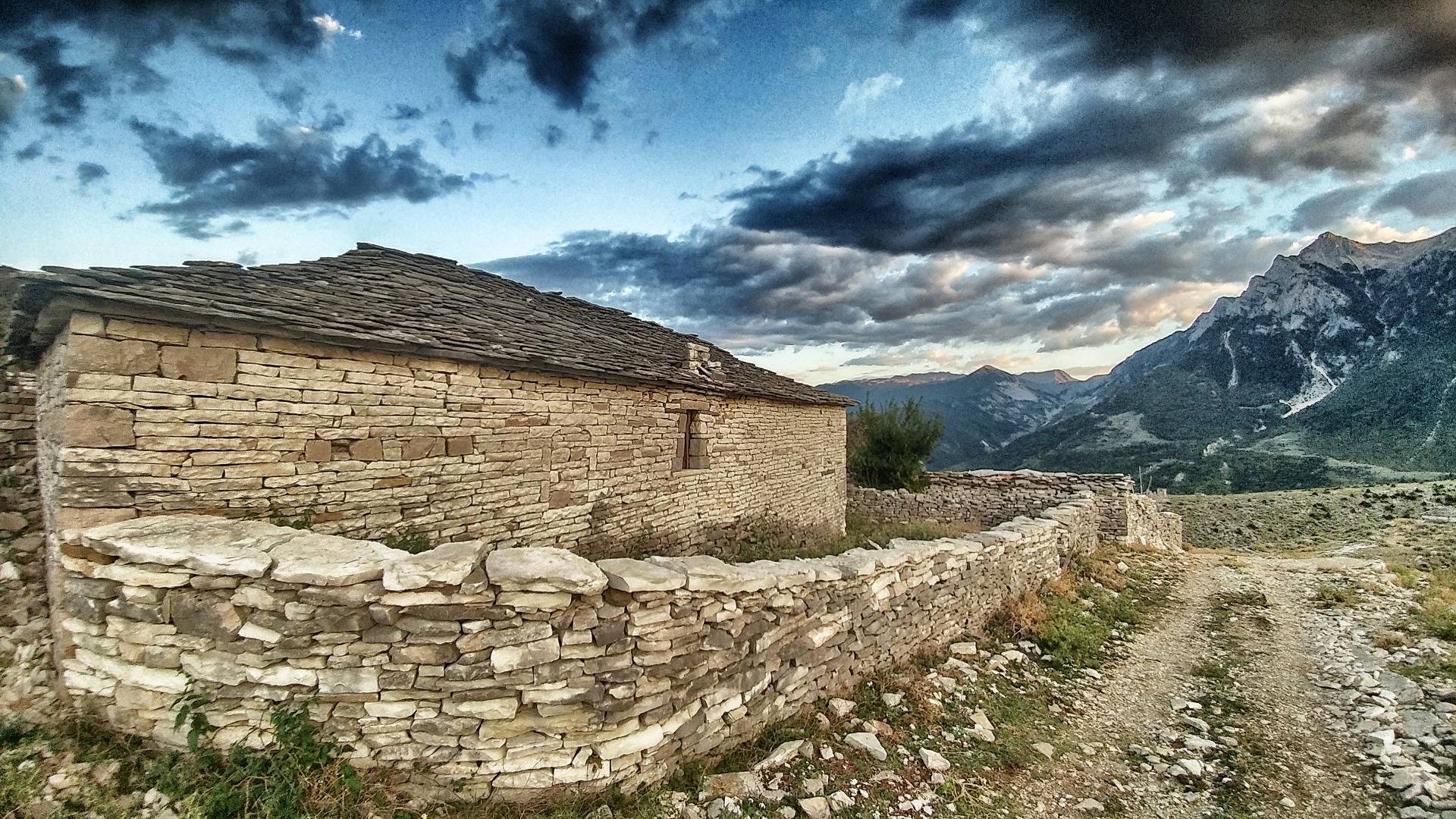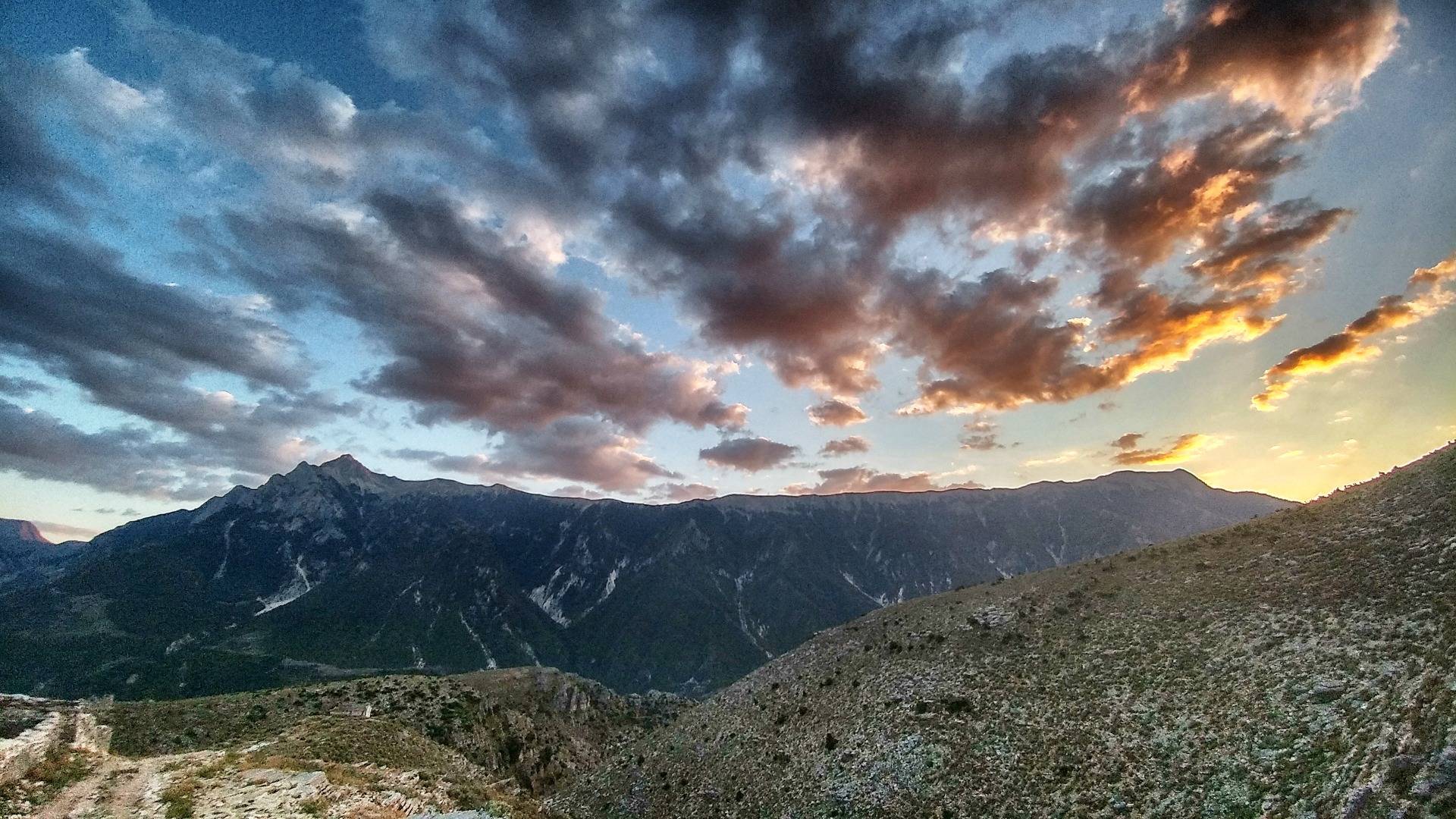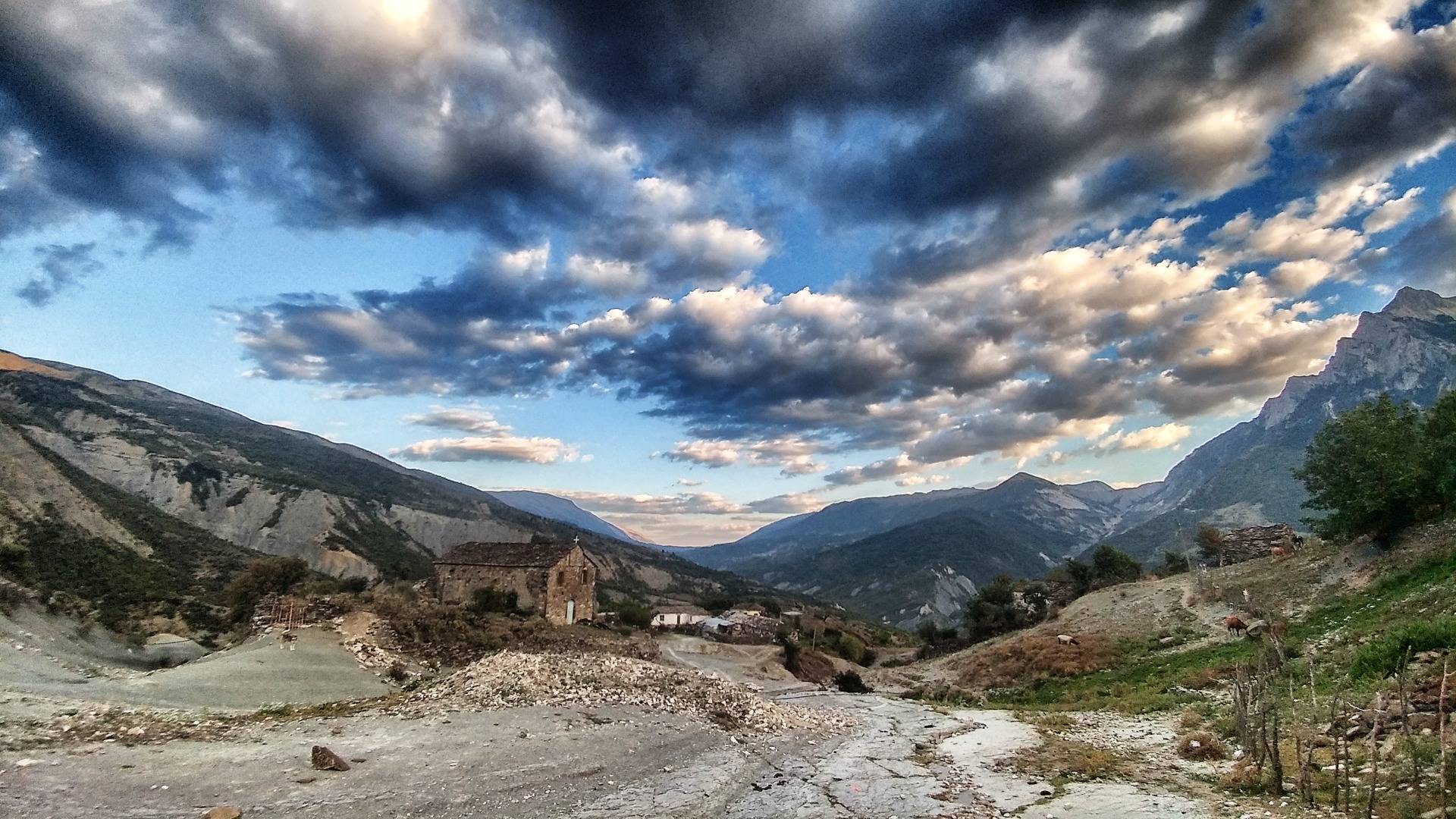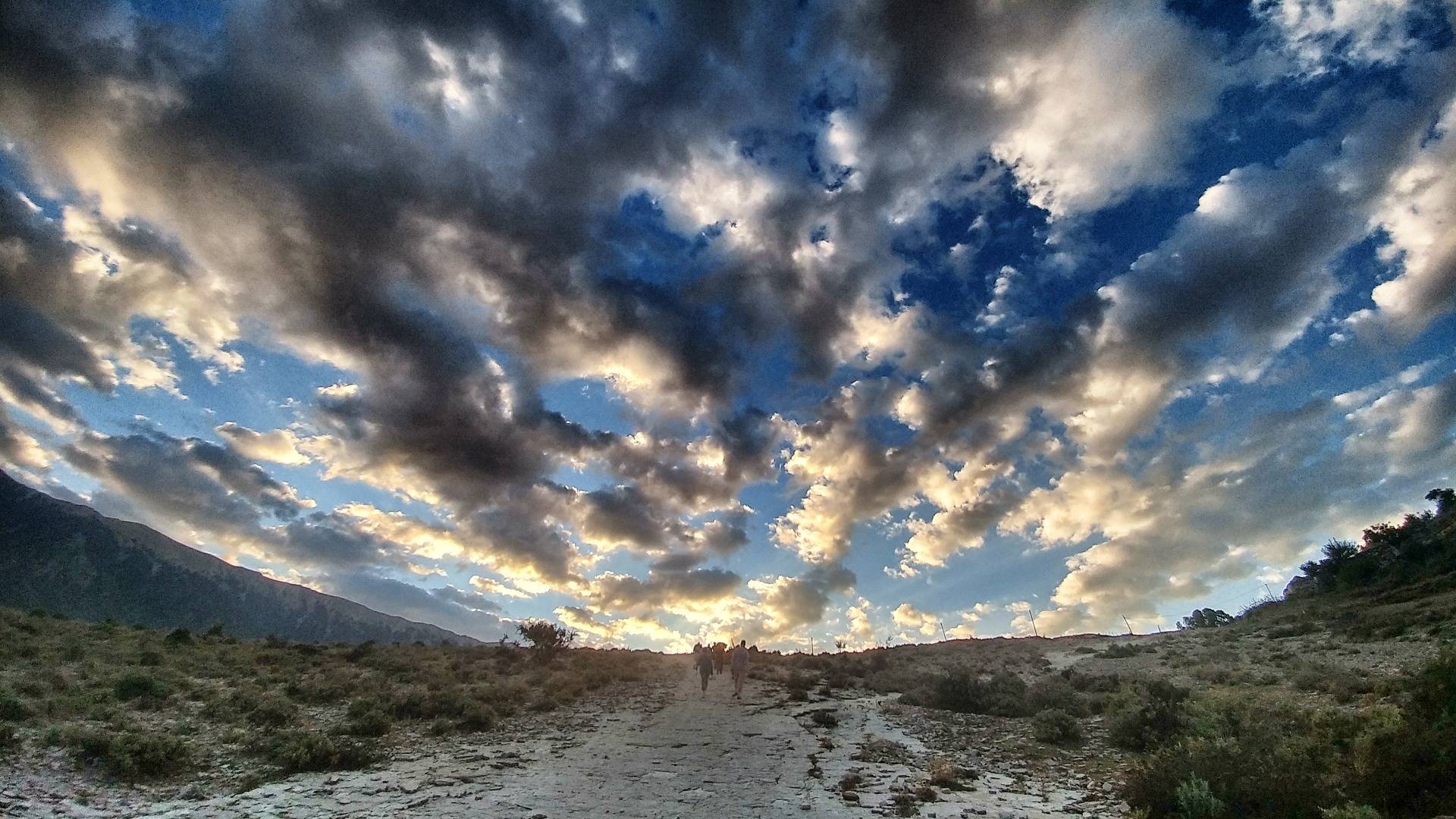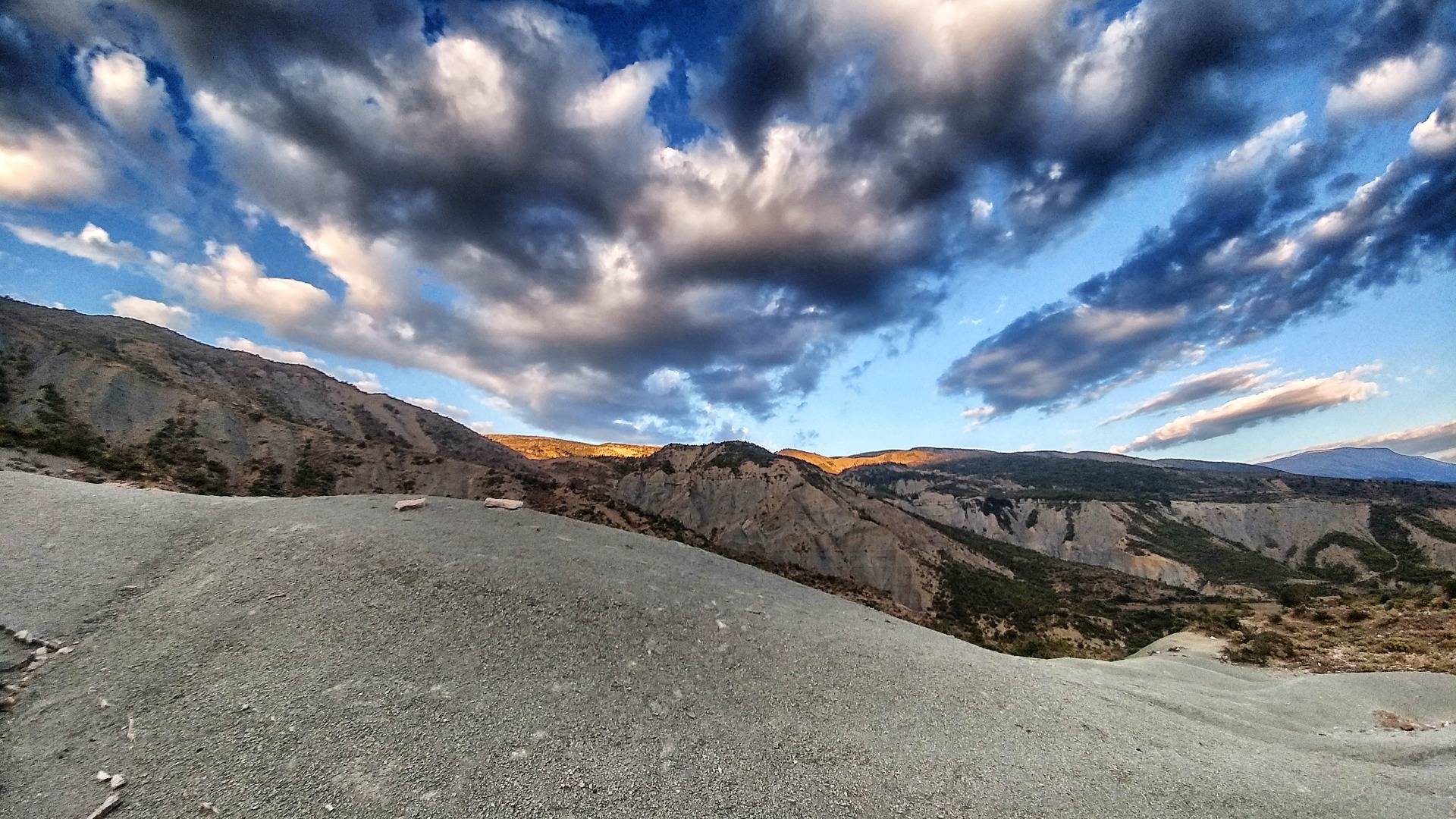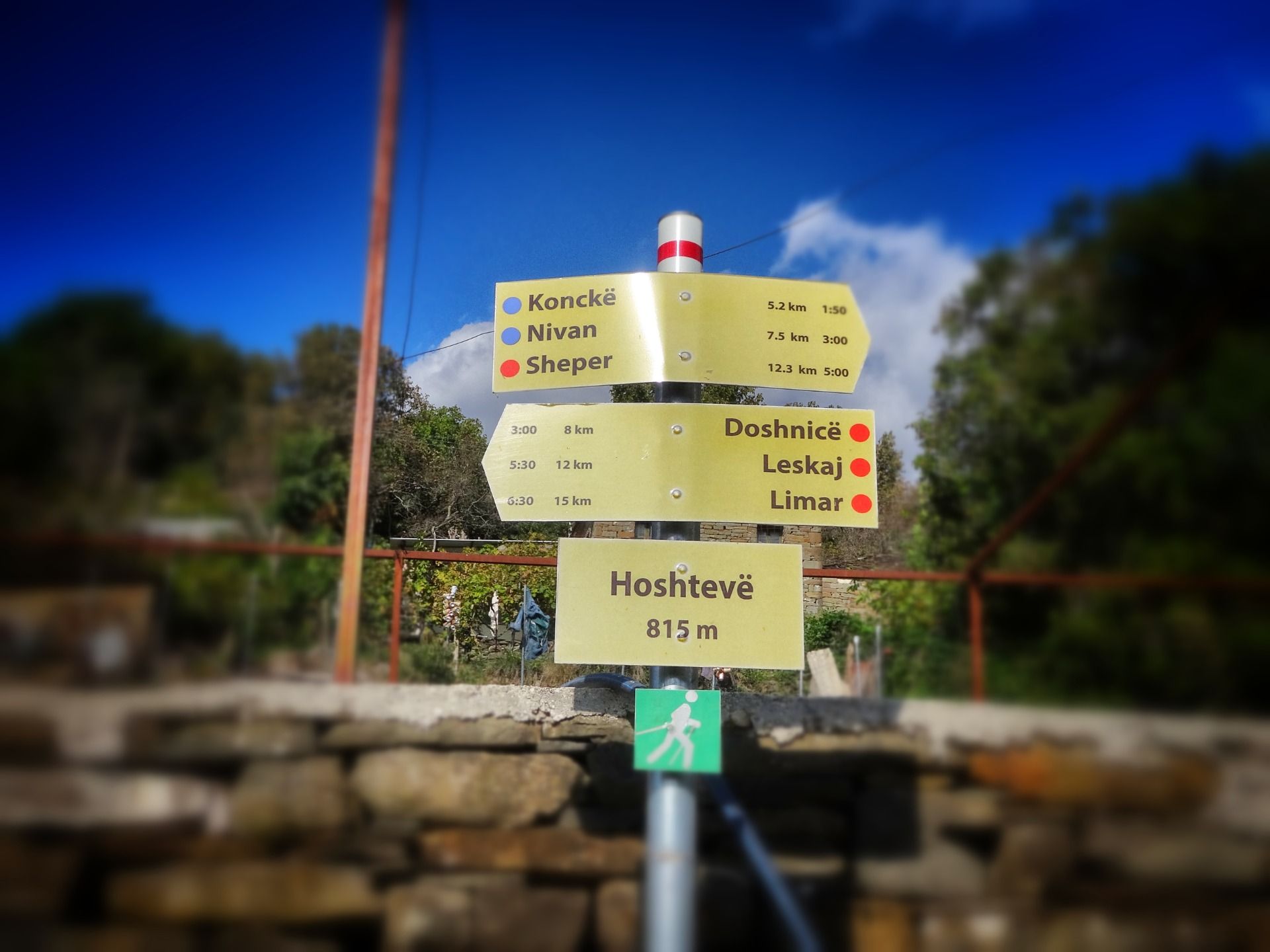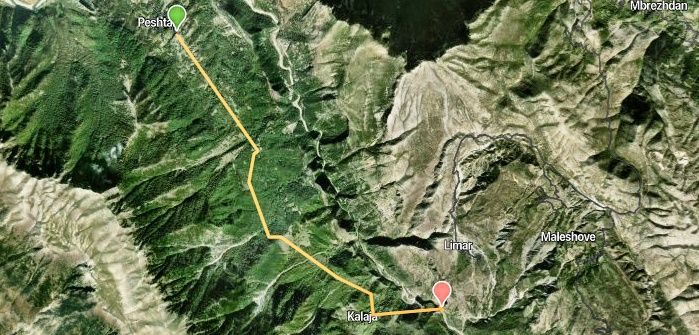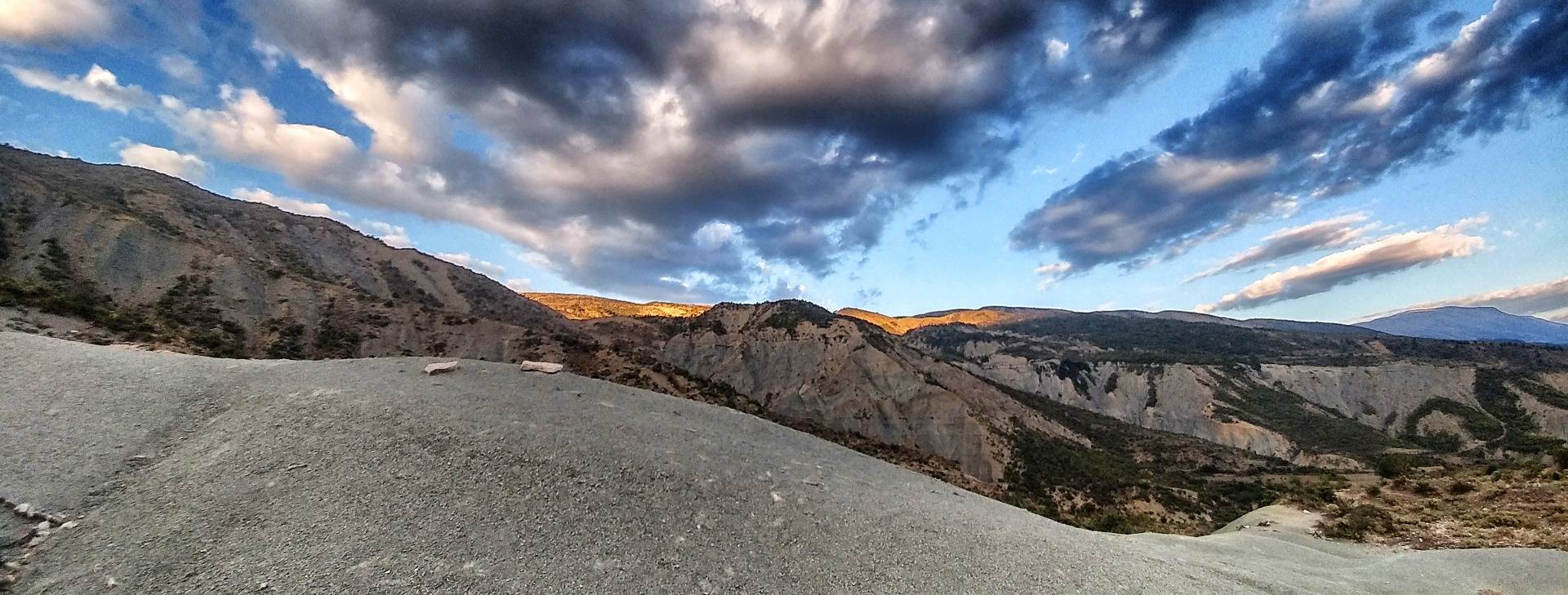Albania, a small forgotten state on the Adriatic Sea that was sealed off from the whole world like North Korea nowadays in the decades after World War II. No one was allowed in, no one was allowed out. That has changed in the meantime.
But still the country with its population of not even three million is a piece of mysterious terra incognita in the middle of Europe. Part 1 of the story is here, part two here, three here and four + five + six + seven + eight.
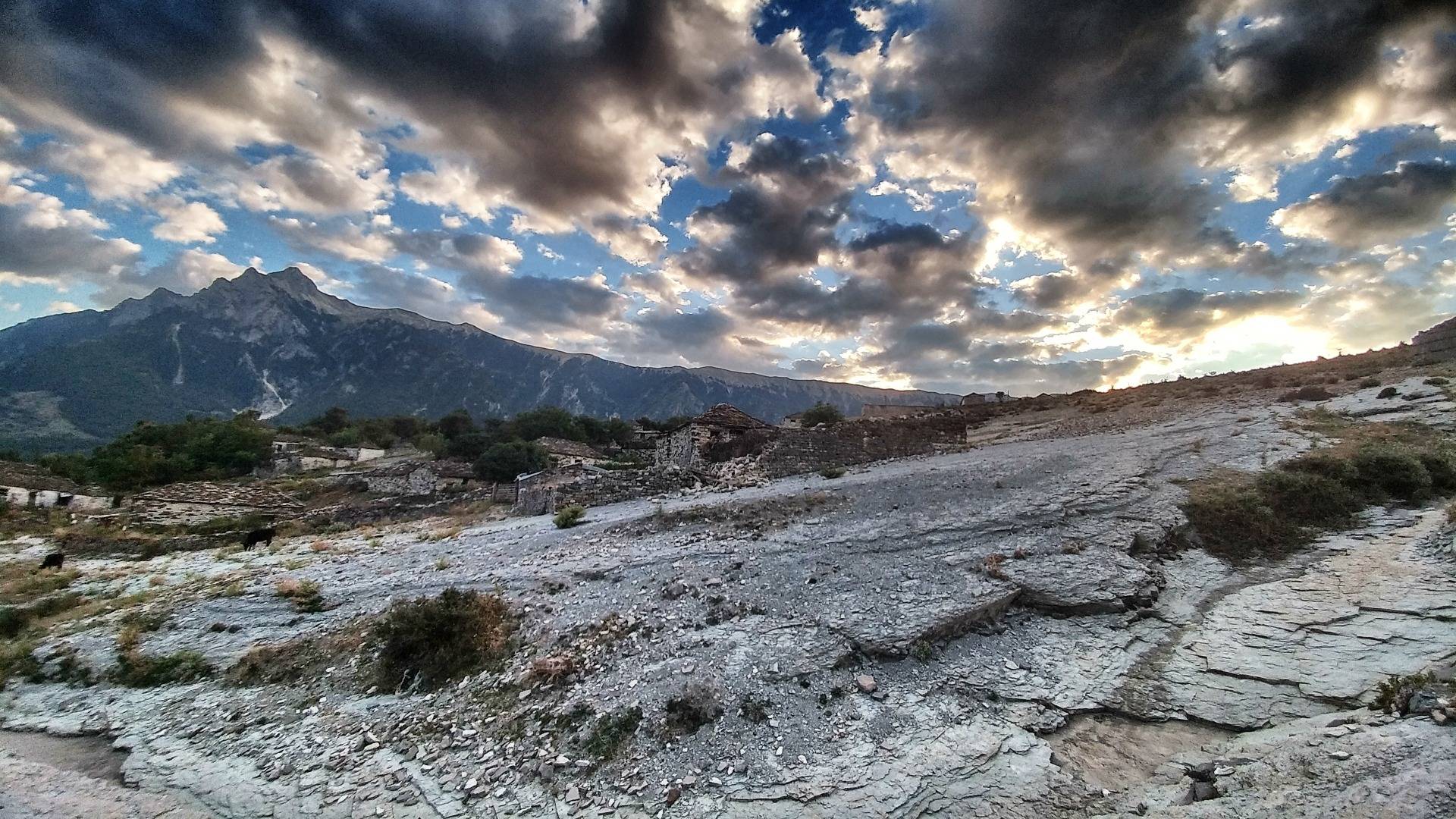
Enough culture, enough history, enough houses, castles, museums and sights. Finally it goes back into the mountains, on the old goat paths, into the realm of the mountain shepherds, the forgotten villages and towns that are half empty and mostly deserted by all the younger people. Back in the mountains, it's from Peshtan to Limar, a route between two places the world has never heard of. We neither.
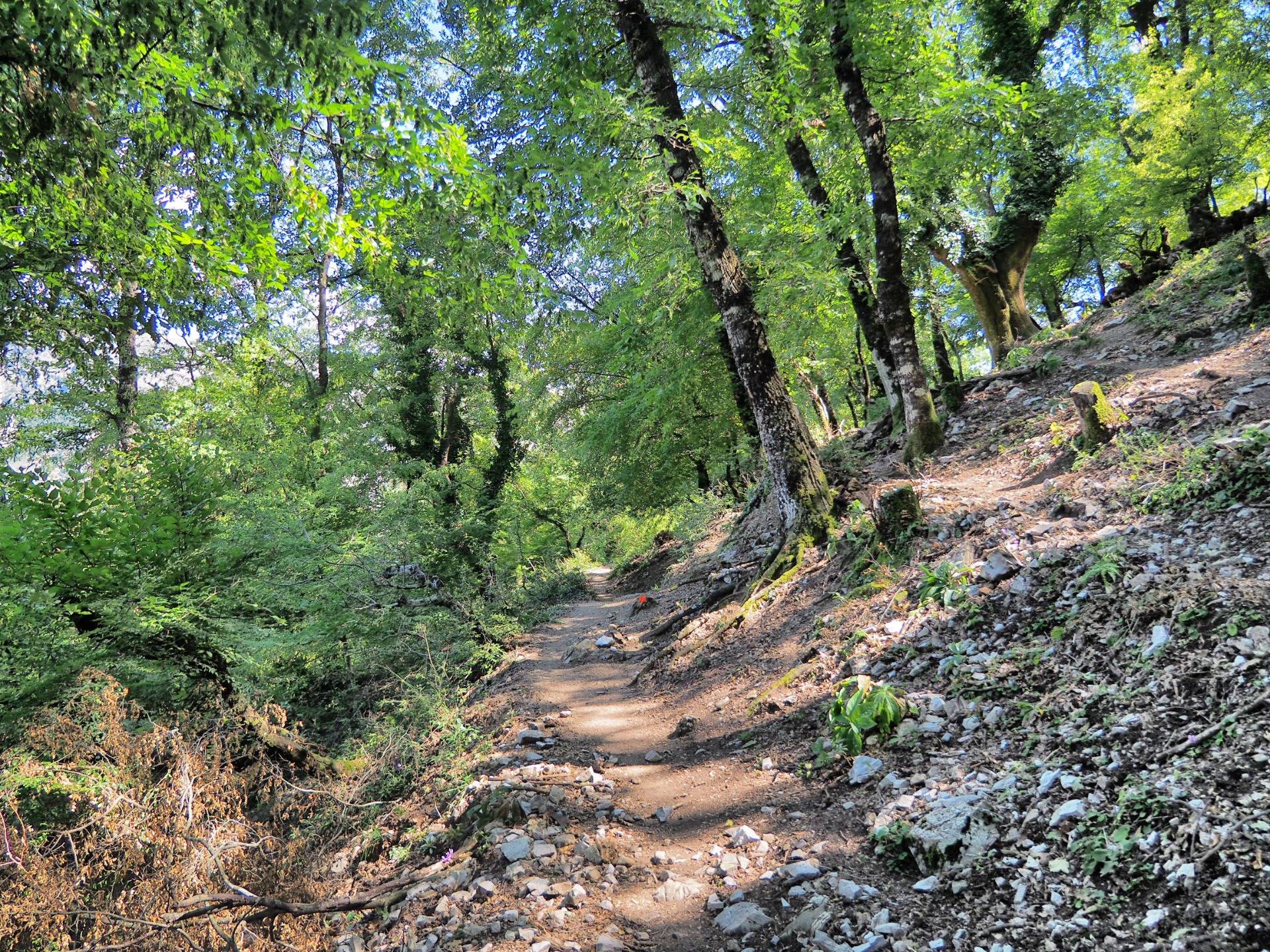
There are no big peaks on the route, but there are endless mountains. It goes across country, not a road in sight, not a piece of civilization. Only once along the way do we come across traces of a time so long ago that only the oldest stones still remember it: the beautiful Ura e Limarit (Limar Bridge), built by the Romans in a long forgotten time. But no one knows for sure.
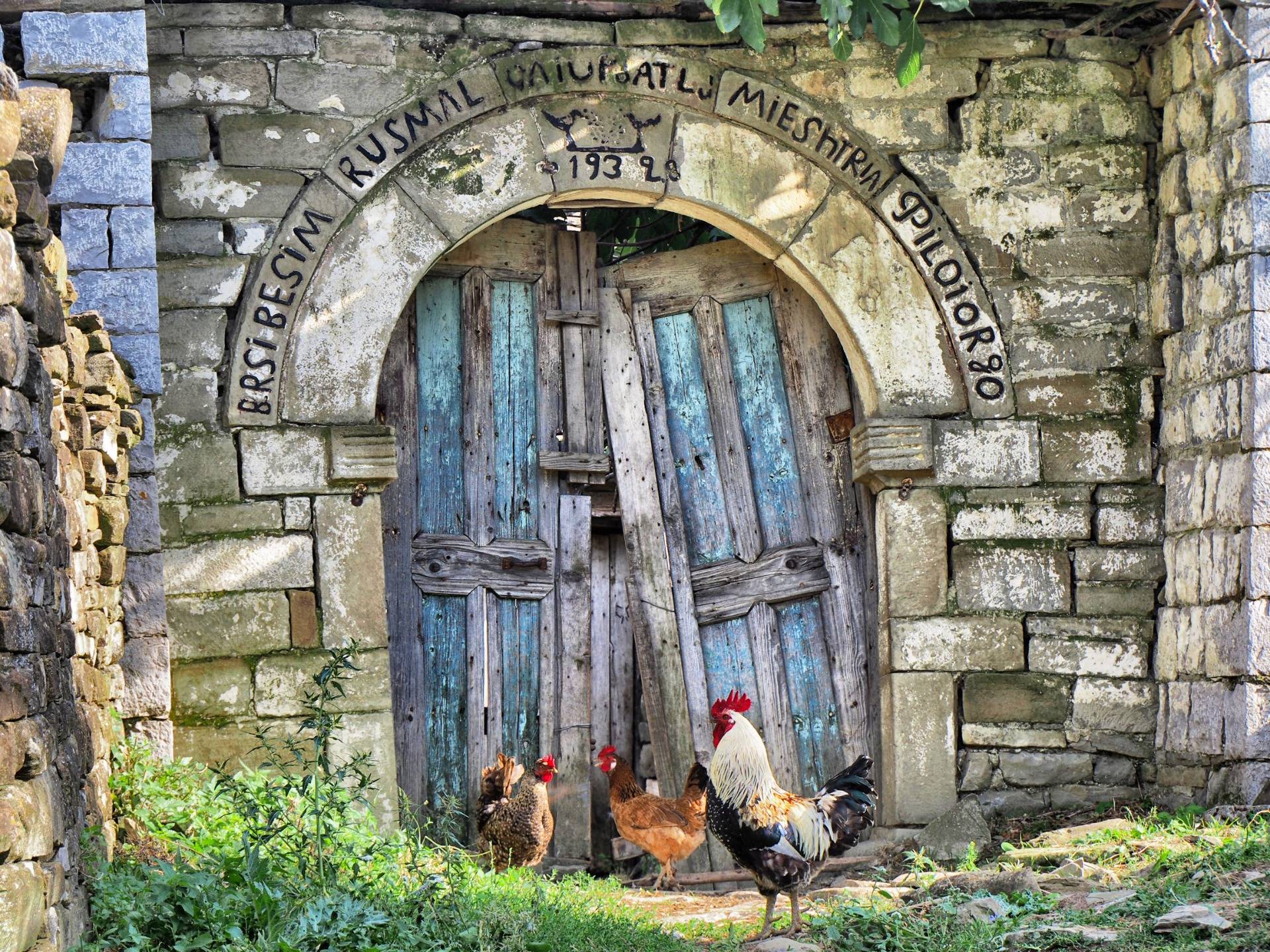
Clean air, empty streets
The village of Peshtan, which is outside of Kelcyre on the border with Tepelene, is one of the places that typifies Albania. Old men and old women live a life that seems peaceful here, away from the great conflicts of the time. The air is clean, the supply usually comes mainly from your own garden. Wood from the forest is used for heating and cooking, and a few goats and sheep occasionally add meat to the soup.
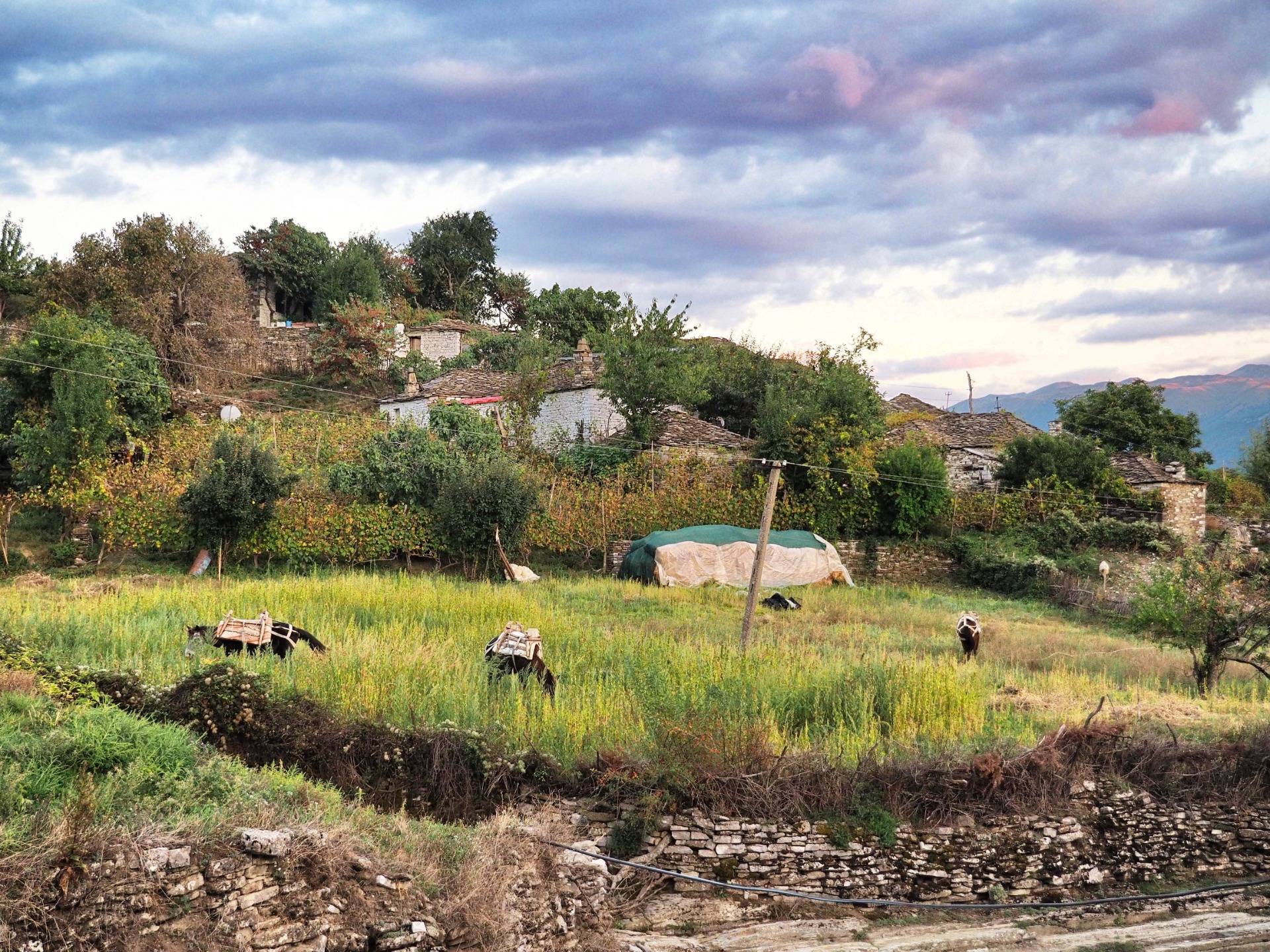
Six hours on loose gravel, mostly along a river, first rocky mountain slopes to the right and left, before a shady path through the forest provides variety. Birds chirp in the sky, goat bells ring in the distance and a few dogs bark in the distance. Otherwise no life anywhere. The sun shone through breaks in the canopy, and the rays of light made interesting patterns on the dirt-covered path.
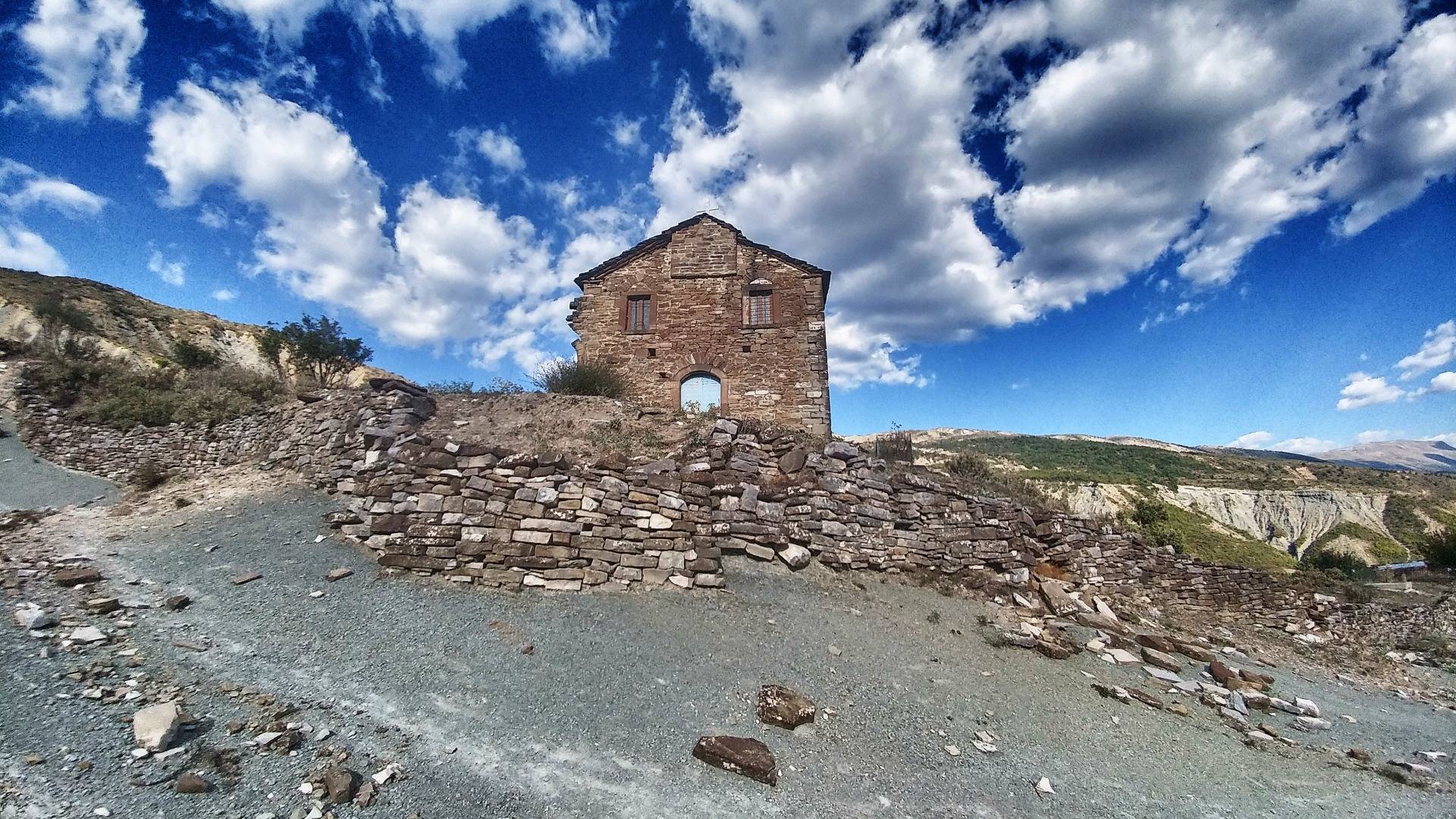
On steep ascents
The hike is comfortable and leisurely, the path is wide and flat and the forest is wonderful to look at. Gradually, however, the steep ascent begins to the village of Kala, which is so tiny and forgotten by the world that no search engine knows it.
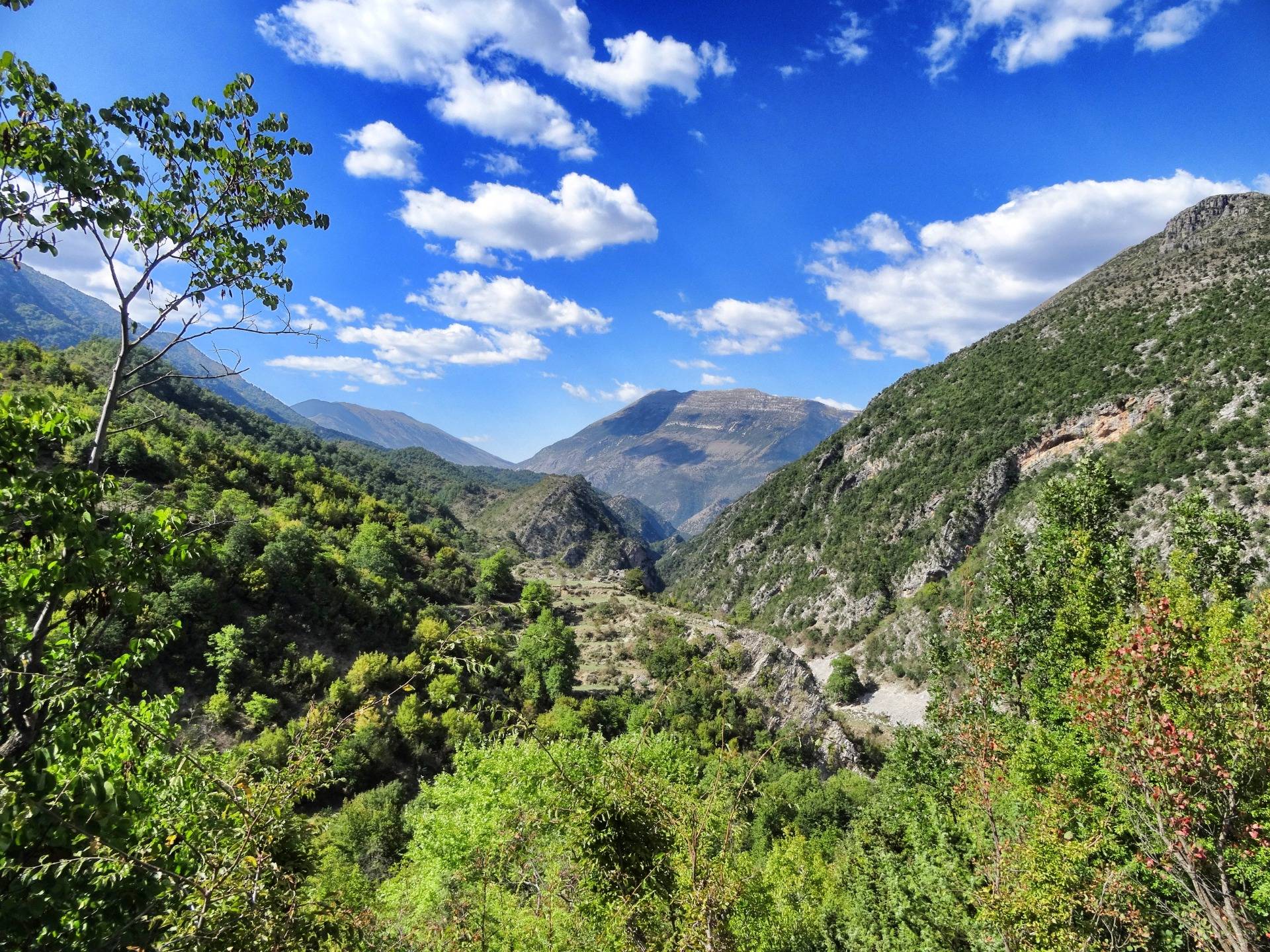
Puffing up we climb higher and higher and as we navigate the rocky trails and small creeks the forest cover breaks open revealing the majestic mountains that surround the valley.
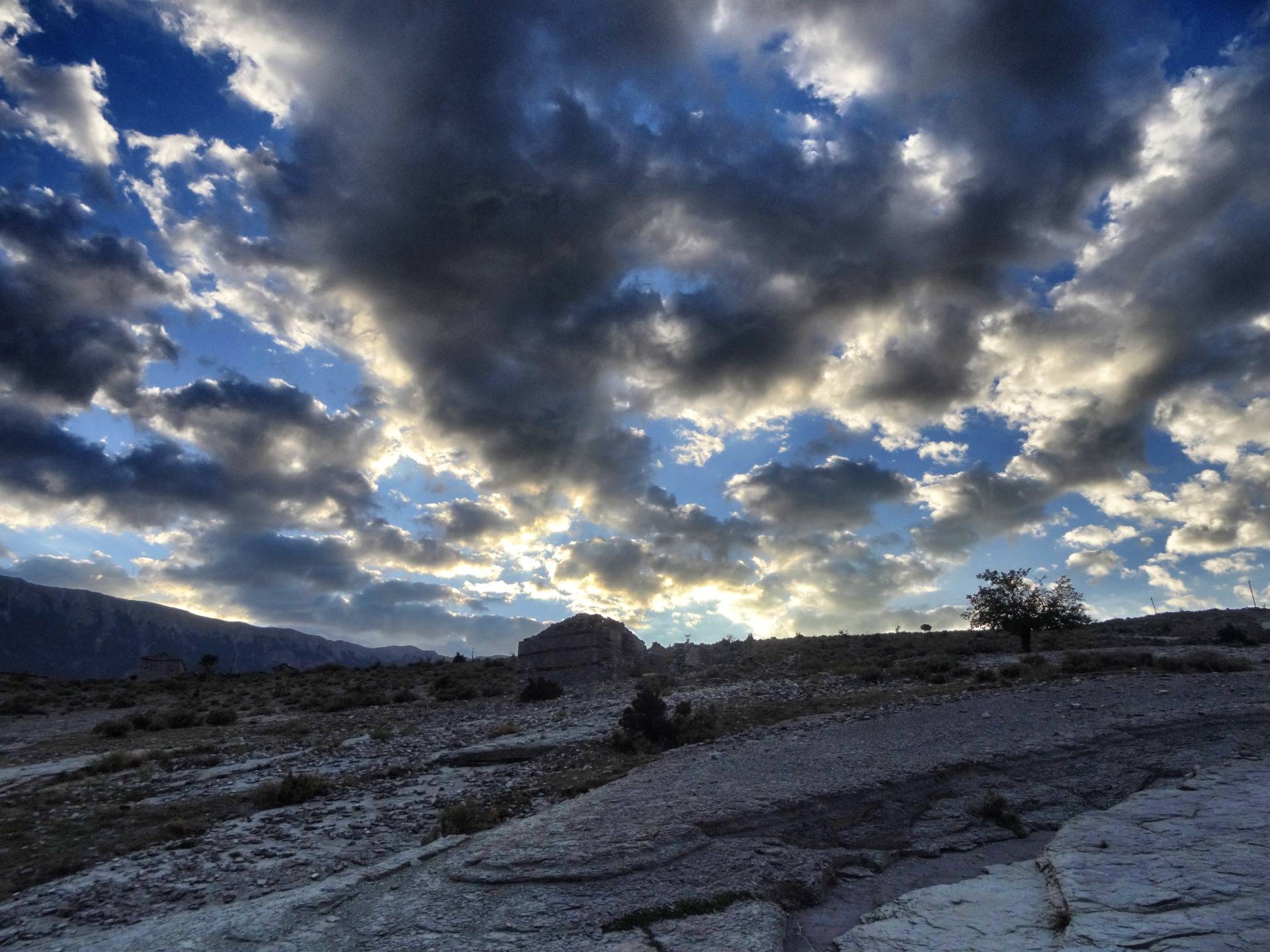
A few houses along the way turn out to be the village of Kala, our intermediate destination. A few residents look curiously over their garden walls, visitors here are probably very, very rare. A man invites us for a coffee and a sip of water, a woman brings some apples. Luckily after Kala the path is level again, an unpaved path, but easy to walk despite the occasional steep, gravelly climb full of scree.
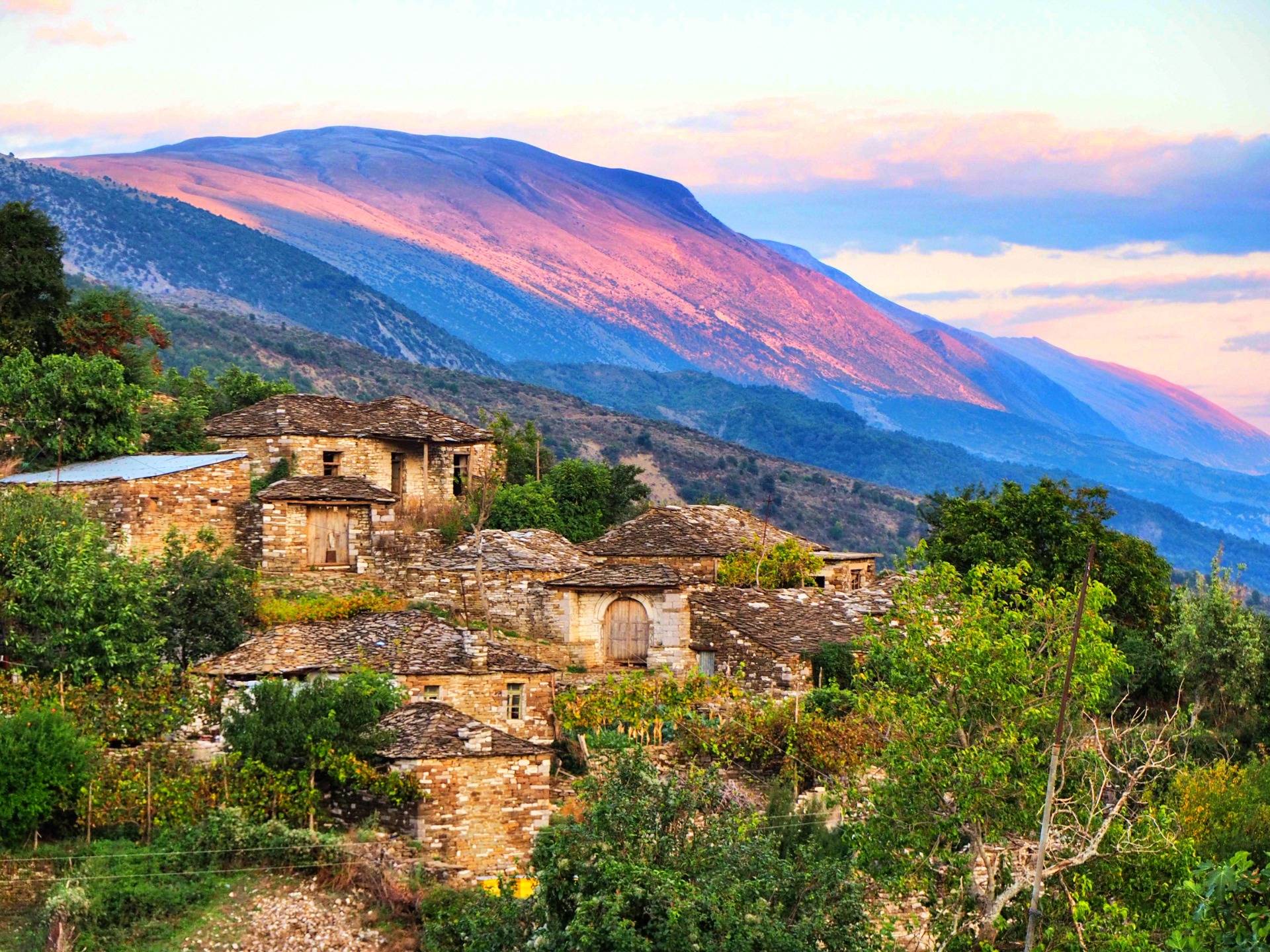
Alone on high meadows
High meadows soon follow, occasionally surrounded by wooden fences. A spring provides cool rock water for the picnic you have brought with you. Then it goes steeply uphill, on a mountain flank directly into the sky. The sun is now beating down, there are spectacular views of distant nameless peaks and the river valley below.
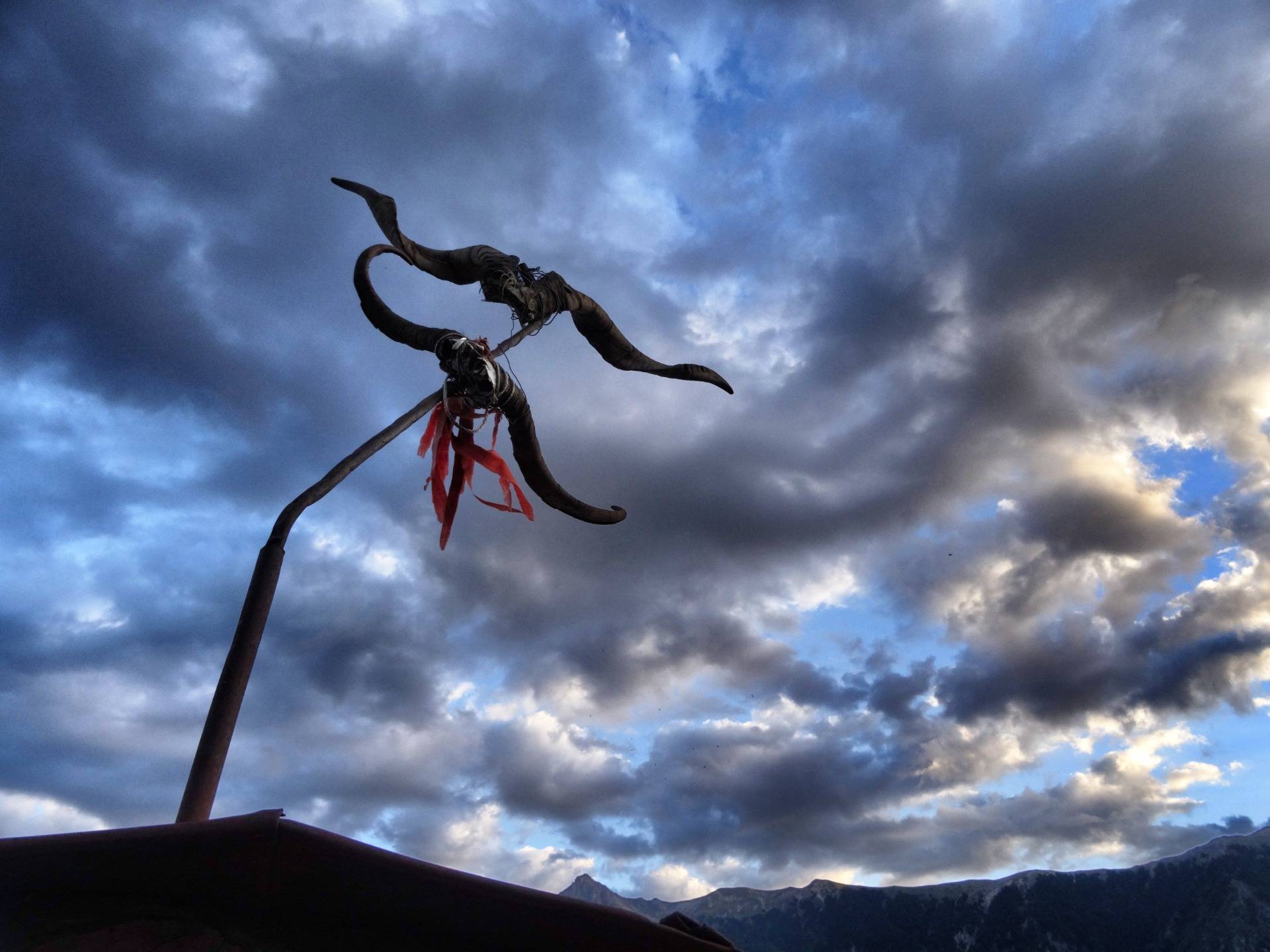
Now the path is incredibly steep. Sometimes you have to hold on to the remains of withered plants to advance. Every meter now seems a hundred times longer, every kilometer seems like a day's distance. No way, easy hike to Guri i Gjate, a famous huge cylindrical rock that rises out of the forest and just doesn't want to get any closer.
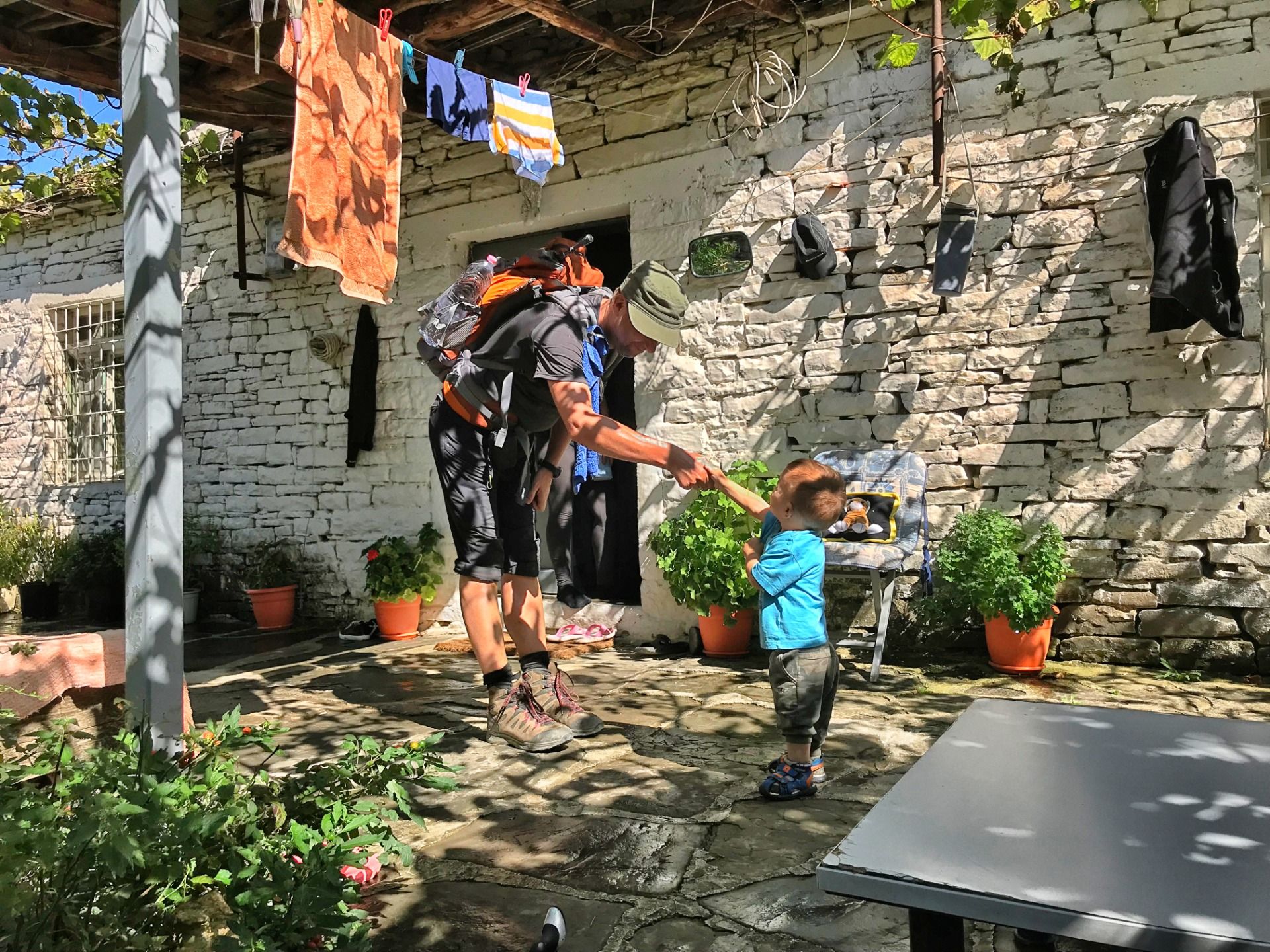
It's hard to imagine how people who always live here get along here. And how the Romans, if they were, built the dirt road up to the bridge of Limar, which we finally meet, is a mystery.
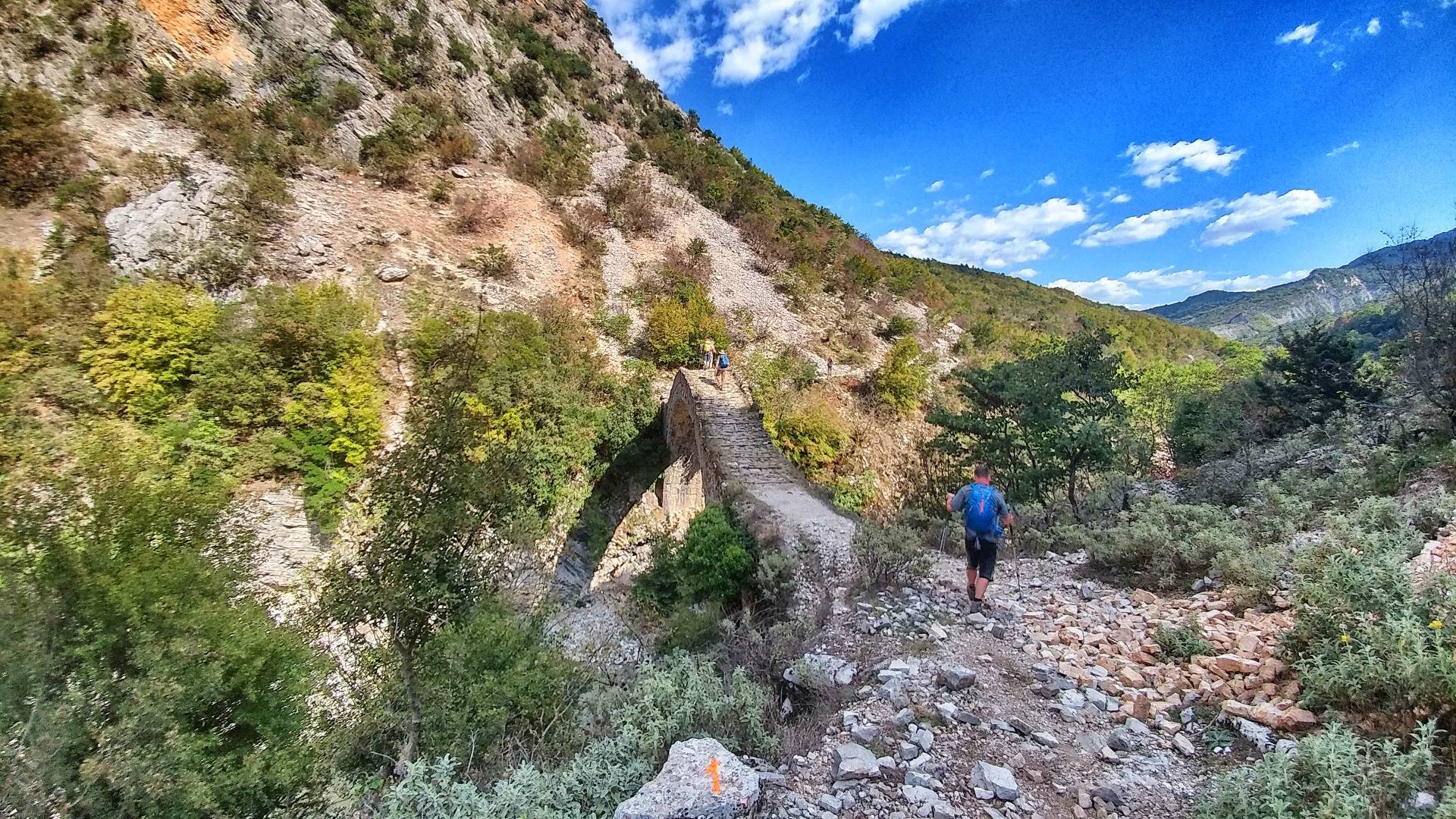
A bridge made of time
The bridge, a stone building like The Loved Ones sings from, butin the characteristic Ottoman style and circular shape, is a real sensation. Although she is incredibly old, she still looks great. In Germany, however, it should neither be used nor entered at all, because it has no railings, not even a few ropes are stretched. On the other side, which we still reach safely, we continue uphill, endless as it seems, although Albania is a very, very small country.
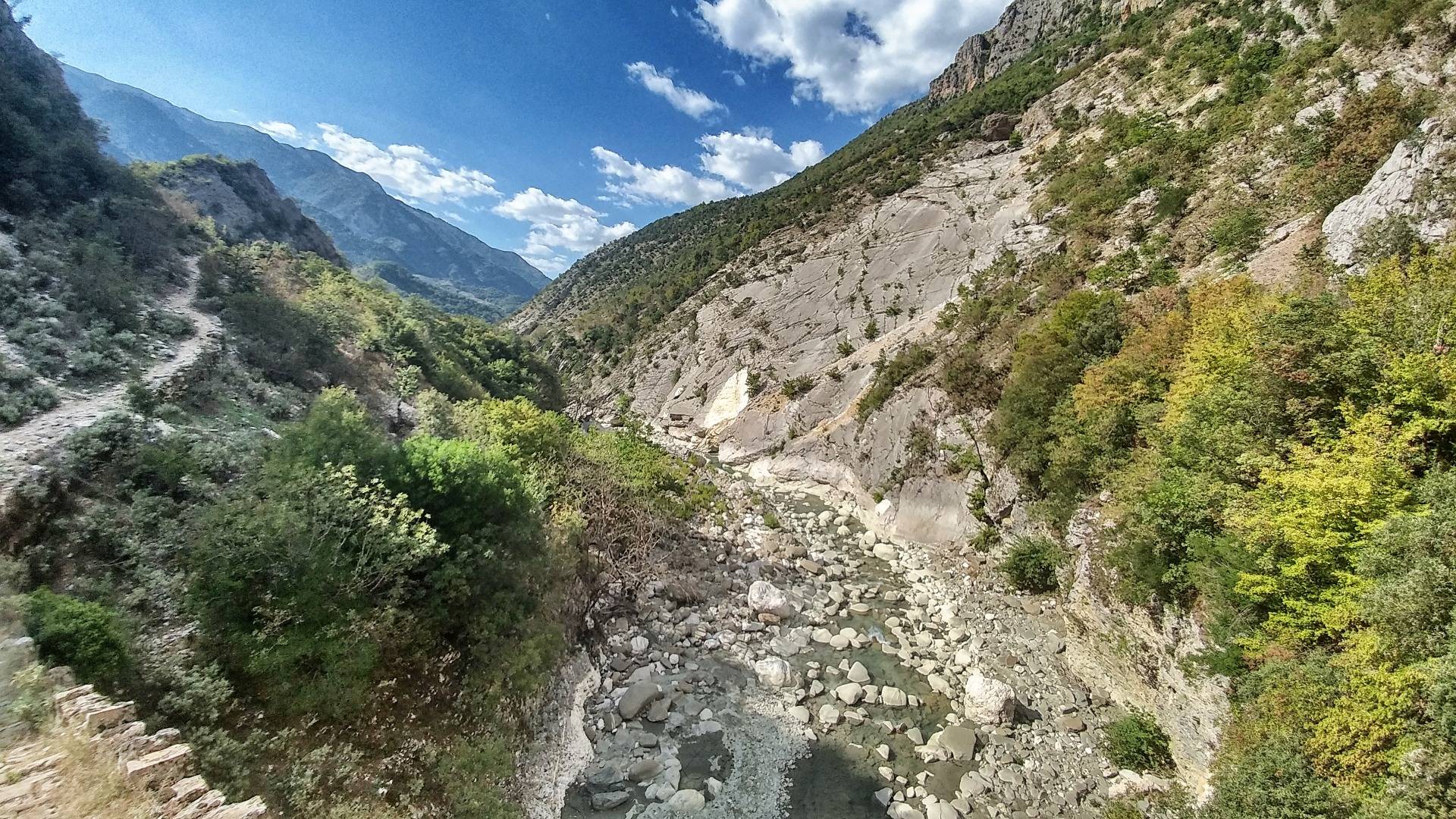
One difficult ascent follows the other, in between you lose height again and again on descents that Mother Nature interposed. In the afternoon, the hiking energy decreases noticeably, at some point you just keep rolling the thought back and forth in your head as to why you are doing all this.
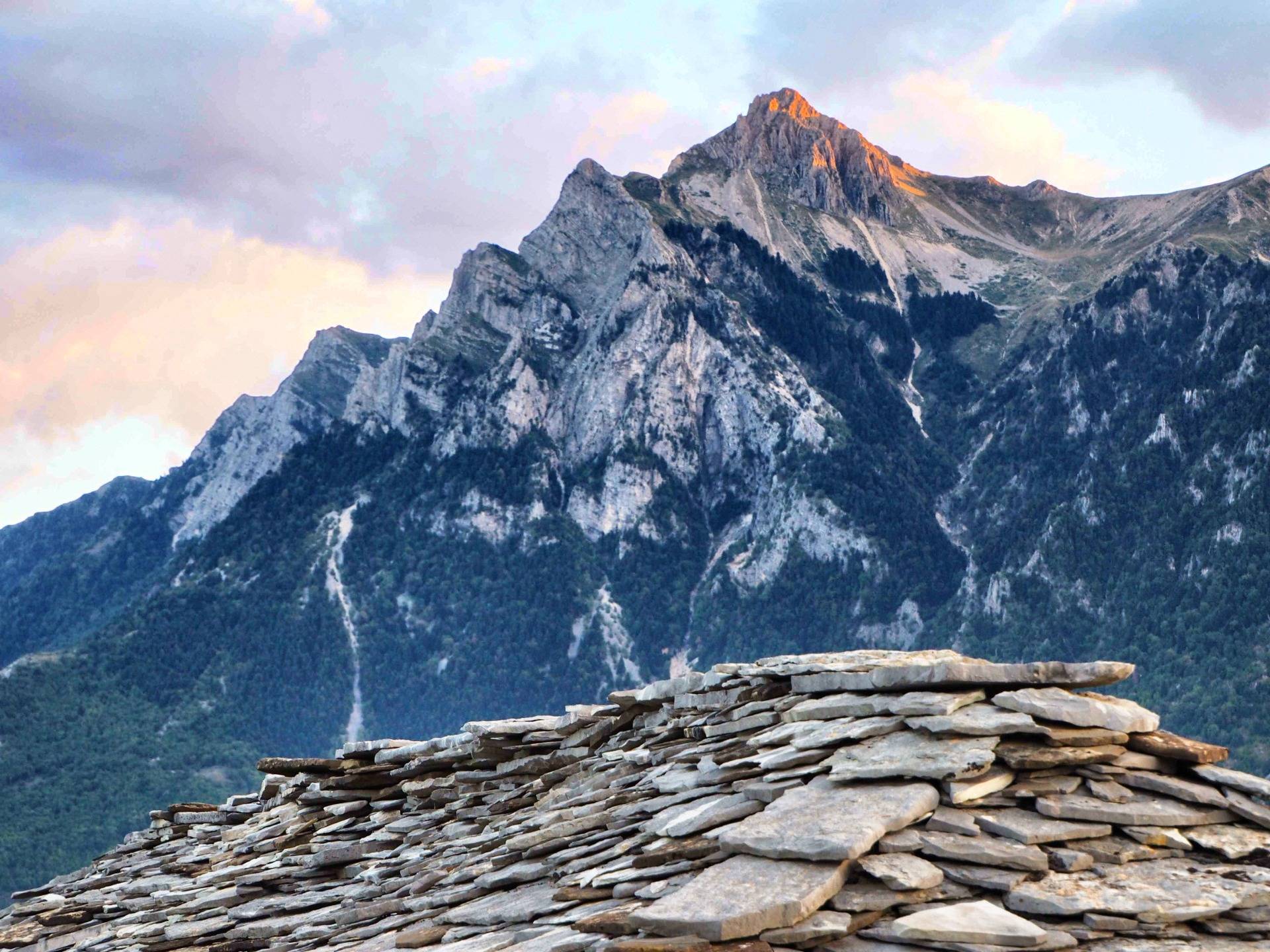
Endless paths, endless pain
Finally, however, another mountain flank, even steeper than all before. Bare rock lying like a steel plate in the evening light. The sun heats from behind, and the reflected light heats from below. We drag ourselves through the wasteland. The path felt endless, again and again. Endless pain.
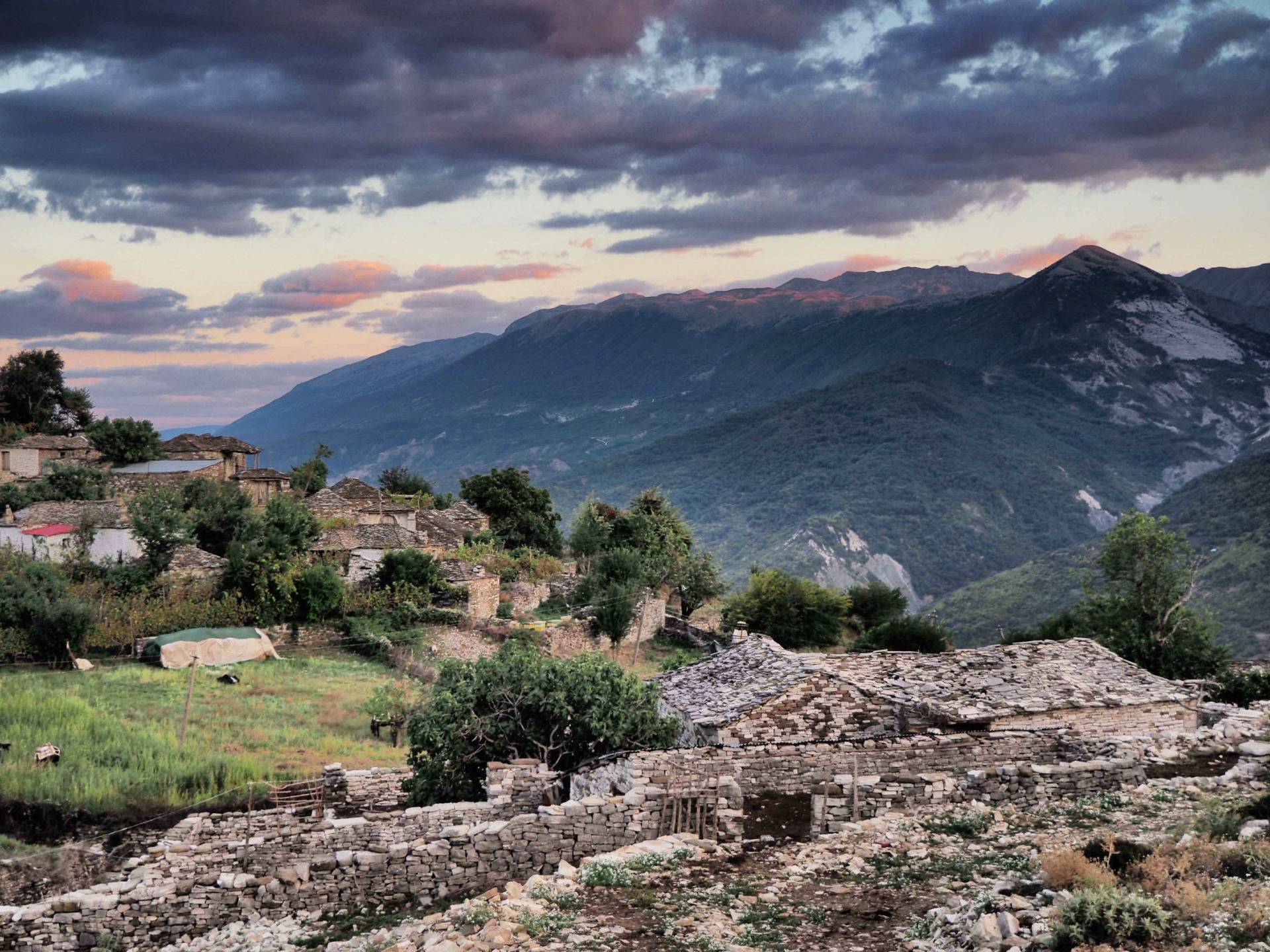
At some point, when nobody believes that we are not lost, houses and even a few tiny cars appear in the distance. And then we're in Limar, another village of the kind you'd retreat to if the zombie apocalypse swept over the world.
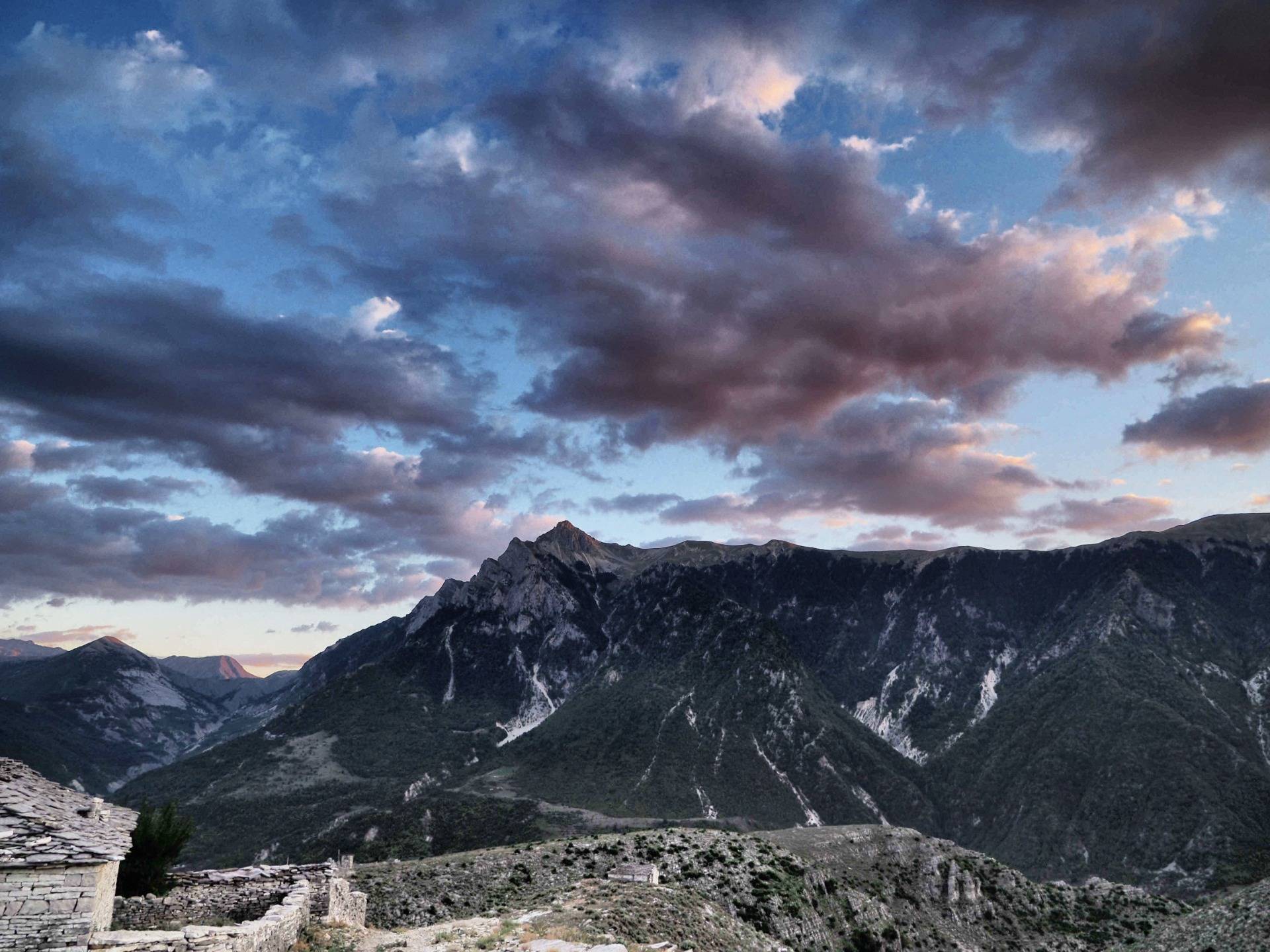
Dried out for beer
The entire hiking group is so dried out today that the beer stocks, which the farmers with whom we are staying the night have prudently provided, are drunk before everyone has completed the natural shower behind the house. Buying supplies is completely impossible, because it takes hours to drive to the nearest supermarket.
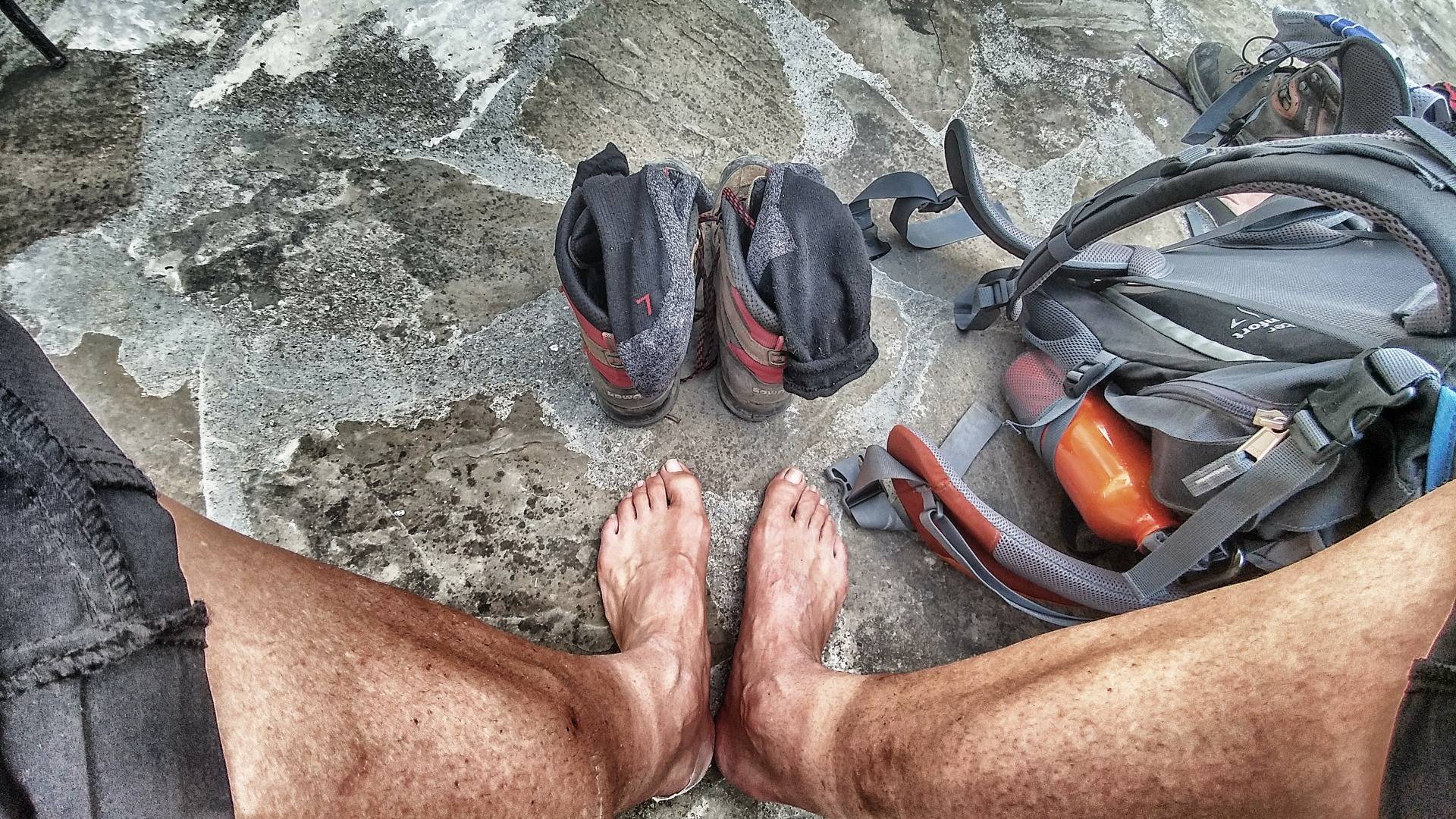
Luckily, however, farmer Koni knows what to do: Armed with two large empty bags, he roams the neighborhood and requisitions whatever beer is left somewhere in the cellar in Limar.
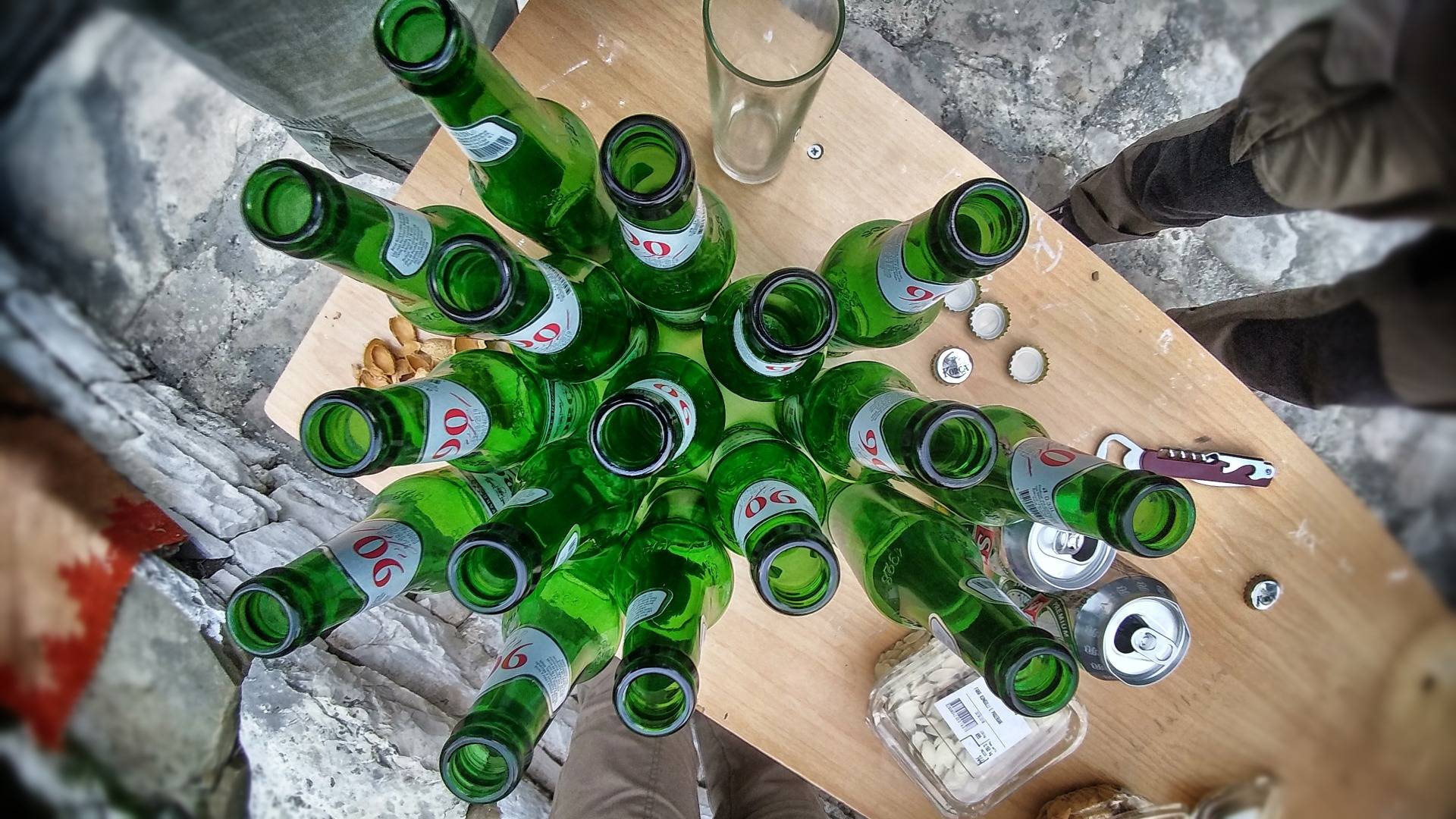
That's just enough to put us all in a happy sleepy exhaustion.
Thank you for reading and if you like my work please follow me on Hive, Travelfeed or Steem or visit my homepage koenau.de
A few more pictures for you:
